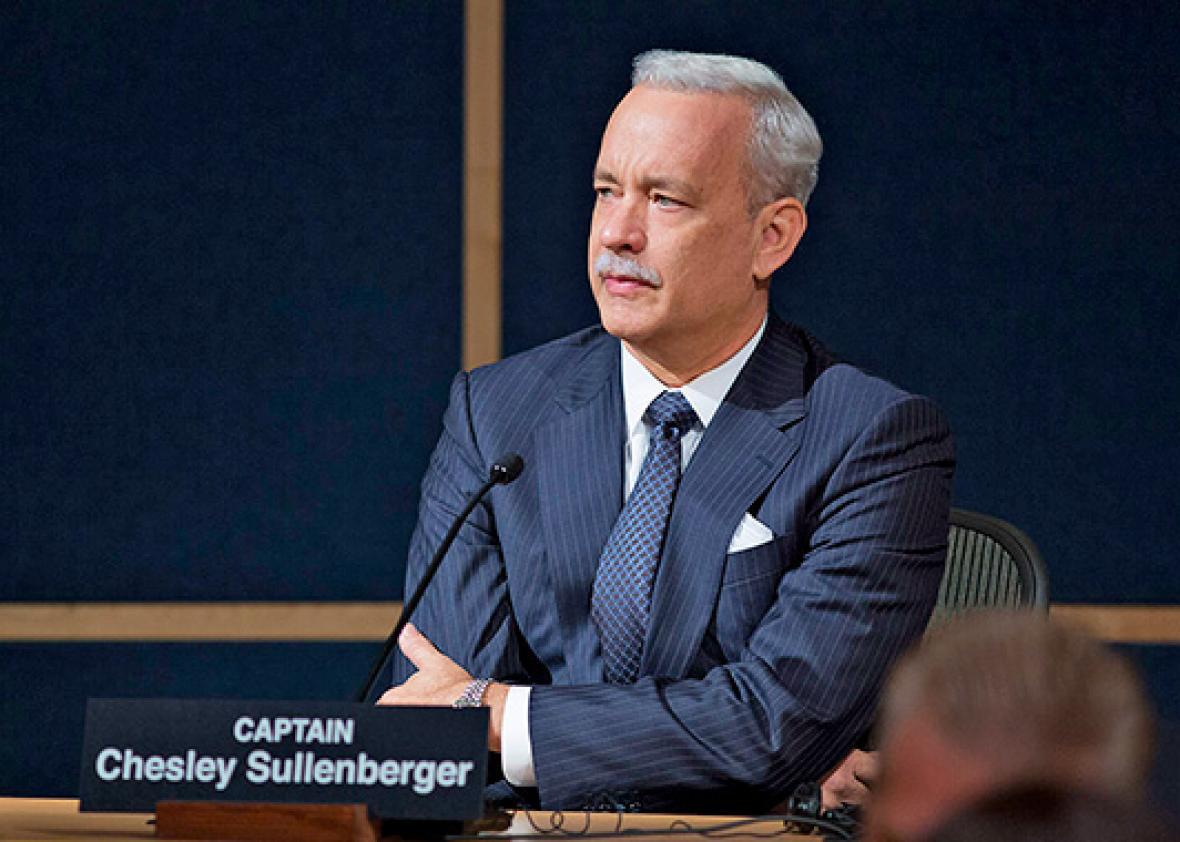In Clint Eastwood’s Sully, which outperformed box office expectations and opened at No. 1 over the weekend, Captain Chesley “Sully” Sullenberger and his co-pilot Jeff Skiles (Aaron Eckhart) spend the final scene being grilled by the National Transportation Safety Board at a public hearing, in which the investigative committee argues that the safely landed flight was really a pilot error. Following several live simulated recreations, an impassioned speech from Sully about taking into account natural human reactions to emergency situations, and the conveniently timed recovery of the destroyed left engine of the plane, the film swiftly and neatly ties up what little conflict and dramatic stakes it had in a matter of minutes. Sully made the correct and heroic choice to land the plane on the Hudson River that fateful, wintry day in January 2009 after all.
And then, one of the lead investigators of the NTSB (played by Anna Gunn), asks a final, poignant query of Skiles: Is there anything he would’ve done differently in those moments? Skiles grins. “I would’ve done it in July,” he cracks (or something similar to that effect, as my memory serves me)—to which he and everyone else in the room breaks out into hearty laughter, as the screen fades to black. … What?
That bizarre punch line, and the way it feels like a kind of cymbal clash at the end of Eastwood’s typically stolid film, is hilariously jarring and strange. The movie takes a trope familiar from cheesy sitcoms and Saturday morning cartoons—the “Everybody Laughs Ending,” in which a bunch of characters laugh together and the episode or movie ends on the lingering notes of their guffaws—and applies it to his latest meditation on American heroism.
Over the last few decades, shows and movies like Police Squad! (which ended every episode with a wisecrack and a faux-freeze frame in the midst of laughter), Wet Hot American Summer, and Strangers With Candy have cleverly parodied the unnaturalness of the trope. (Much like the laugh track, which pop culture has now mined for creepy meta-comedy.)
There is not a shred of irony in Eastwood’s take on the “Everybody Laughs Ending.” Instead, he fully bends to the will of classic Old Hollywood hokum, with a very quick (and unsurprising) tidying-up of the storyline and an “Aw, shucks” ending that would make Louis B. Mayer proud. Through 2016 eyes, it feels stilted and forced, as it’s clear that the director isn’t going for parody with this choice. After nearly 90 minutes of a story that didn’t really need to be retold in feature-length form in the first place, this ending feels especially unnerving, only serving to reinforce how trivial Eastwood’s dramatic tension really is.
